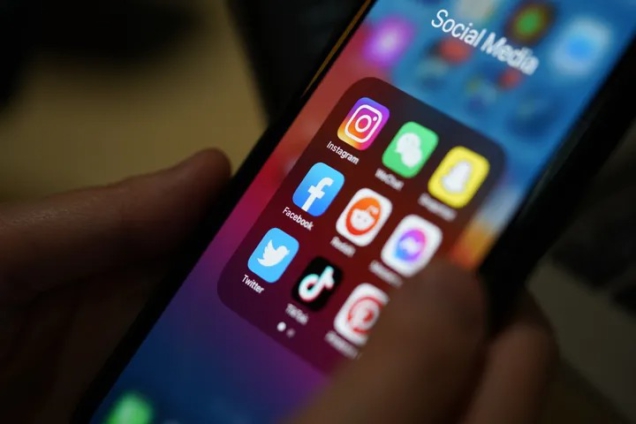
Audio By Carbonatix
The Executive Secretary of the National Peace Council, Dr George Amoh, has raised concerns about the role of social media in exacerbating the Bawku conflict.
Speaking on Joy News’ PM Express on Tuesday, he called for immediate action to curb the spread of hate speech and inflammatory content online, which he said is fueling tensions between feuding factions in the area.
“The media has also played some role in what is happening in Bawku today,” Dr. Amoh said.
“You see the things that are shared on social media platforms—two days ago, somebody sent me a post, and the content was simply not good.
"We have to find ways of containing hate language and hate speeches that are spread through social media and even some traditional media platforms.”
Bawku, a town in the Upper East Region, has been plagued by a long-standing chieftaincy dispute that has led to violent clashes, displacement, and loss of lives.
Dr Amoh stated that while efforts to address the root causes of the conflict are ongoing, the spread of divisive content on social media poses a significant obstacle to peacebuilding.
“Social media has become a common tool for the feuding factions,” he noted.
“We have what we call ‘conflict entrepreneurs’—people who benefit from chaos—and they are using these platforms to spread hate and misinformation. These spoilers are waiting to see what will happen, so we must act swiftly to counter their efforts.”
Dr Amoh acknowledged recent interventions, including former President John Mahama’s visit to Bawku, as steps in the right direction.
“The President has begun very well by saying, ‘We need to bring everybody on board.’ His presence and his words send a powerful signal,” Dr. Amoh remarked.
“But we need to maintain this momentum and address the digital dimension of the conflict.”
He called on government officials, traditional authorities, and civil society organizations to collaborate in tackling the issue.
“It’s not just about what happens on the ground; we must also focus on what happens in the digital space. Hate speech, misinformation, and inflammatory content must be tracked and addressed,” he said.
Dr Amoh further urged President Mahama and other leaders to ensure that appointed ministers and chief executives are proactive in promoting peace and countering narratives that incite violence.
“We need leaders who can prosecute the peace agenda in the strongest terms. Bawku can return to peace, but we must work together to neutralize the spoilers,” he added.
The National Peace Council has reiterated its commitment to promoting coexistence and dialogue in the region, stressing that peace is essential for development.
Dr Amoh’s remarks underscore the growing recognition of social media’s influence in modern conflicts and the urgent need for measures to regulate its misuse.
The Bawku crisis, rooted in historical disputes, has been compounded by modern communication tools that amplify tensions.
As peace efforts continue, experts warn that failing to address the digital dimension of the conflict could undermine progress and prolong the suffering of affected communities.
Latest Stories
-
KAAF University donates to Widows, urges Public to end Discrimination against Elderly Widows
13 minutes -
NAIMOS task force disrupts illegal mining operations along Ankobra River
23 minutes -
President’s New Year message lacked hope and sincerity – NPP’s Senyo Amekplenu
57 minutes -
Ebo Noah remanded pending psychiatric exam, to reappear on January 15
1 hour -
Our public university system is falling down
1 hour -
Ho Central Mosque under heavy security, worshippers forced to pray outdoors
2 hours -
An open letter to H.E. John Dramani Mahama: The audacity of the third shift
2 hours -
A new era of healthcare dawns in Kintampo: Mary Queen of Love Medical Hospital opens its doors
3 hours -
NDC gov’t has demonstrated strong fiscal discipline – Abdulai Alhassan
3 hours -
Heavily armed Burkinabè soldiers arrested in Ghana
3 hours -
Tamale Chief commends IGP Special Operations Team for crime reduction efforts
4 hours -
None of NPP’s 5 flagbearer aspirants is credible – Abdulai Alhassan
4 hours -
Police arrest suspect for unlawful possession and attempted sale of firearm
5 hours -
3 arrested in connection with Tema robberies
5 hours -
Your mouth on weed is nothing to smile about
6 hours

